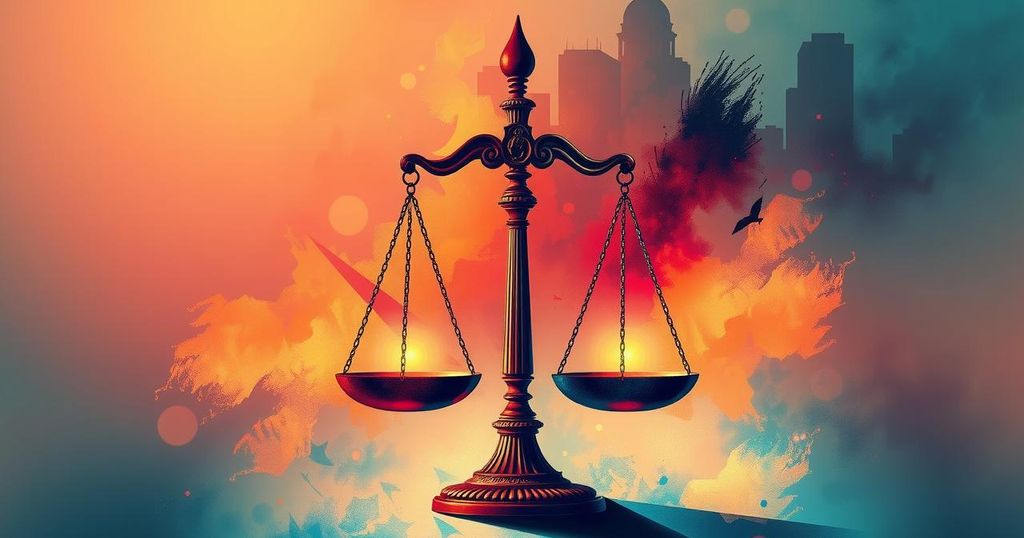Following charges against Jair Bolsonaro for alleged coup plotting, Brazil is celebrating its judicial strength while contrasting its political accountability with the United States. Key figures emphasize how the institutions have acted effectively in safeguarding democracy, while Bolsonaro’s alleged actions could lead to significant prison time if convicted, highlighting a major difference in political consequences between the two nations.
Brazilian politicians and citizens are celebrating the strength of their democracy following the indictment of former president Jair Bolsonaro, who faces serious allegations related to an attempted coup. In contrast to the U.S., where former President Donald Trump has faced minimal repercussions for his actions, Bolsonaro’s legal troubles mark a significant distinction in how political accountability is managed. Marcelo Freixo, a prominent left-wing politician, remarked, “In Brazil coup-mongers go to jail. In the U.S. they get back into the White House.”
The attorney general’s indictment alleges that Bolsonaro masterminded a conspiracy to retain power after losing the 2022 election to Luiz Inácio Lula da Silva. This indictment details a range of serious offenses, including involvement in an attempted coup, armed criminal association, and efforts to undermine the rule of law. If found guilty, Bolsonaro could face over 40 years in prison, a scenario that starkly contrasts with Trump’s lack of accountability following the Capitol riots.
As more details emerged about Bolsonaro’s alleged actions, including the use of disinformation to destabilize Brazil’s democractic institutions, concerns grew regarding the threats to democracy in the country. The indictment suggests that Bolsonaro attempted to delegitimize electoral processes and the judiciary, creating conditions that justified potential military intervention. The shocking revelations also included claims of plans to “neutralize” political opponents through violence.
While Bolsonaro’s legal team vehemently denies the charges, expressed as “astonishment and anger,” there is a noted sentiment among many Brazilians that their judiciary has acted decisively in preserving democracy. Freixo emphasized that Brazilian institutions proved their effectiveness in confronting and curbing anti-democratic attempts, stating, “Here in Brazil the institutions did their job defending democracy.”
Other legal experts, like lawyer Augusto de Arruda Botelho, called this a historic moment, establishing clear limits for democratic engagement. He pointed out the importance of adhering to the law and the consequences faced by those exceeding these boundaries. Furthermore, Conrado Hübner Mendes, a constitutional law professor, expressed confidence that overwhelming evidence supports a conviction against Bolsonaro, potentially concluding his political ambitions.
Despite the legal challenges ahead, commentators note that the political ramifications for Bolsonaro may still rally his supporters, who may perceive him as a victim of political repression. The ongoing legal proceedings could take considerable time, leaving many uncertainties about the future of both Bolsonaro and the far-right movement he has inspired.
The ongoing legal proceedings against Jair Bolsonaro represent a pivotal moment for Brazilian democracy, highlighting the nation’s ability to hold political leaders accountable. The contrast between Brazil and the United States in handling anti-democratic actions raises critical discussions about justice and institutional integrity. As proceedings advance, the implications for Bolsonaro’s future and his political legacy remain to be seen, with potential consequences not only for him but also for the broader political landscape in Brazil.
Original Source: www.theguardian.com




